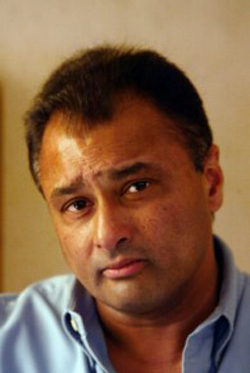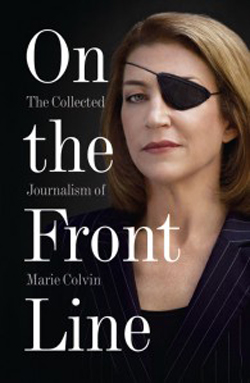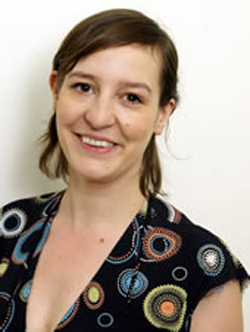Posted on March 20, 2013 by The Orwell Prize -
Posted on March 20, 2013 by The Orwell Prize -

The past decade saw the rise of the British National Party, the country’s most successful ever far-right political movement, and the emergence of the anti-Islamic English Defence League. Taking aim at asylum seekers, Muslims, “enforced multiculturalism” and benefit “scroungers”, these groups have been working overtime to shift the blame for the nation’s ills onto the shoulders of the vulnerable. What does this extremist resurgence say about the state of modern Britain? Drawing on archival research and extensive interviews with key figures, such as BNP leader Nick Griffin, Daniel Trilling shows how previously marginal characters from a tiny neo-Nazi subculture successfully exploited tensions exacerbated by the fear of immigration, the War on Terror and steepening economic inequality. Mainstream politicians have consistently underestimated the far right in Britain while pursuing policies that give it the space to grow. Bloody Nasty People calls time on this complacency in an account that provides us with fresh insights into the dynamics of political extremism. Taken from Verso Books
Posted on March 20, 2013 by The Orwell Prize -

Clare Sambrook is a freelance, and a current contributor to openDemocracy, Private Eye and The Guardian. In 2010 Clare won both the Paul Foot Award and the Bevins Prize for outstanding investigative journalism for her work exposing government attempts to mislead Parliament and the public about the forcible arrest and detention of asylum-seeking families. With six friends she co-founded the citizens’ campaign End Child Detention Now. Her acclaimed debut novel, Hide & Seek, came out in more than a dozen languages in 2005, becoming a New York Times editor’s choice and a Daily Mail book club selection.
Submitted articles
The UK Border Agency’s long, punitive campaign against children (helped by G4S and Serco) How many children secretly deported under UK Border Agency’s Gentleman’s Agreement? UK policymaking outsourced: the curious case of adoption reform Corporate Power stamps its brand on British Policing Who should investigate murder — the police, or a private security company? A child, a bleeding anus, interrogation by the UK Border Agency
Other links
Clare Sambrook on Twitter
Posted on March 20, 2013 by The Orwell Prize -

The world has watched, stunned, the bloodshed in Mexico. Forty thousand murdered since 2006; police chiefs shot within hours of taking office; mass graves comparable to those of civil wars; car bombs shattering storefronts; headless corpses heaped in town squares. And it is all because a few Americans are getting high. Or is it part of a worldwide shadow economy that threatens Mexico’s democracy? The United States throws Black Hawk helicopters, DEA assistance, and lots of money at the problem. But in secret, Washington is at a loss. Who are these mysterious figures who threaten Mexico’s democracy? What is El Narco?
El Narco is not a gang; it is a movement and an industry drawing in hundreds of thousands, from bullet-riddled barrios to marijuana-covered mountains. The conflict spawned by El Narco has given rise to paramilitary death squads battling from Guatemala to the Texas border (and sometimes beyond). In this “propulsive … high-octane” book (Publishers Weekly), Ioan Grillo draws the first definitive portrait of Mexico’s cartels and how they have radically transformed in the past decade. Taken from Bloomsbury
Posted on March 20, 2013 by The Orwell Prize -

David Gardner is the FT‘s international affairs editor and author of Last Chance: The Middle East in the Balance. He was the paper’s Middle East editor from 1995-99. In 2003 he won the David Watt prize for political journalism for his writing on the Arab world.
Submitted articles
The seismic tussles that will shape the Middle East Lebanon can overcome its divisions to deter Syria Assads regime is finished do not mourn its passing Febrile and fragmented Hollow victory Autonomy under fire
Posted on March 20, 2013 by The Orwell Prize -

Kim Sengupta is the Defence and Diplomatic Correspondent of The Independent. He covers international and domestic news and his extensive reporting from around the world has included many of the major conflicts in recent times.
Submitted articles
Other links
Kim Sengupta on Journalisted
Posted on March 20, 2013 by The Orwell Prize -

A fearless, passionate veteran reporter of conflicts from around the world, Sunday Times journalist Marie Colvin was killed in February 2012, covering the uprising in Syria from the besieged city of Homs. On the Front Line is a collection of her finest work, a portion of the proceeds from which will go to the Marie Colvin Memorial Fund. Marie Colvin held a profound belief in the pursuit of truth, and the courage and humanity of her work was deeply admired. On the Front Line includes her various interviews with Yasser Arafat and Colonel Gadaffi; reports from East Timor in 1999 where she shamed the UN into protecting its refugees; accounts of her terrifying escape from the Russian army in Chechnya; and reports from the strongholds of the Sri Lankan Tamil Tigers where she was hit by shrapnel, leaving her blind in one eye. Typically, however, her new eye-patch only reinforced Colvin’s sense of humour and selfless conviction. She returned quickly to the front line, reporting on 9/11, Afghanistan, Iraq, Gaza and, lately, the Arab Spring. Immediate and compelling, On the Front Line is a street-view of the historic events that have shaped the last 25 years, from an award-winning foreign correspondent and the outstanding journalist of her generation. Taken from HarperCollins
Posted on March 20, 2013 by The Orwell Prize -

Paul joined the BBC in 2001, making his first live appearance on the day of 9/11. He covered the corporate scandals that followed: Enron and Worldcom. His groundbreaking reports on the rise of China as an economic power won him the Wincott Award in 2003. He has covered stories as diverse as Hurricane Katrina, gang violence on Merseyside, the social impact of mobile phones in Africa and the rise of Aymara nationalism in Bolivia. Paul was one of the BBC’s first bloggers and has twice been nominated for the Orwell Prize. He covered the collapse of Lehman Brothers live from outside its New York HQ and, “has hardly stopped for breath since then”, reporting on the social and economic impact of the global meltdown from the mean streets of Gary, Indiana to the elite salons of Davos. Born in Leigh, Greater Manchester, in 1960 he studied music and politics at Sheffield University, switching to journalism in the early 1990s. He is the author of two books: Live Working or Die Fighting, How the working class went global; and Meltdown: The end of the age of greed. Taken from the BBC
Submitted articles
Love or nothing: The real Greek parallel with Weimar Timon of Athens: the power of money Spain: Simmering anger in Seville The growing demand for food banks in breadline Britain Behold, the British establishment, panicked Abortion is key US political flashpoint as laws tighten
Other links
Paul Mason on Twitter Paul Mason on Journalisted
Posted on March 20, 2013 by The Orwell Prize -

Andrew Norfolk is The Times journalist instrumental in breaking the Rotherham grooming scandal. He recently won the Paul Foot Award for investigative journalism.
Submitted articles
Other links
Posted on March 20, 2013 by The Orwell Prize -

It is often the smallest details of daily life that tell us the most. And so it is under occupation in Palestine. What most of us take for granted has to be carefully thought about and planned for: When will the post be allowed to get through? Will there be enough water for the bath tonight? How shall I get rid of the rubbish collecting outside? How much time should I allow for the journey to visit my cousin, going through checkpoints? And big questions too: Is working with left-wing Israelis collaborating or not? What affect will the Arab Spring have on the future of Palestine? What can anyone do to bring about change? Are any of life’s pleasures untouched by politics? Taken from Profile Books
Posted on March 20, 2013 by The Orwell Prize -
Posted on March 20, 2013 by The Orwell Prize -

One quiet day when her mother was away from home, Carmen Bugan’s father put on his best suit and drove into Bucharest to stage a one-man protest against Ceauşescu. He had been typing pamphlets on an illegal typewriter and burying it in the garden each morning under his daughter’s bedroom window. This is the story of what happened to Carmen and her family, isolated and under surveillance in their beloved village home. It is an intimate piece of our recent history, the testimony of an extraordinary childhood left abruptly behind. Above all, it is a luminous, compassionate, and unflinchingly honest book about the price of courage, the pain of exile, and the power of memory.
Posted on March 20, 2013 by The Orwell Prize -

John Arlidge is a freelance journalist who writes for the Sunday Times in London and for Conde Nast in New York.
Submitted articles
The Lion’s Roar The Debt Collector Twin Towers Show us the money, comrade
Other links
John Arlidge on Twitter
Posted on February 28, 2012 by The Orwell Prize -

Zoe Williams writes for The Guardian and the New Statesman. She writes political commentary, interviews and reviews. Her work has also appeared in other publications, including The Spectator, the London Cyclist and the Evening Standard where she contributed columns on a variety of subjects, and a diary about being a single woman in London. Submitted articles The mad scramble for school places The UK riots: the psychology of looting This policy on child support is worthy of a budget airline Feminism in the 21st century Other links Zoe Williams on Journalisted Zoe Williams on Twitter
Posted on February 28, 2012 by The Orwell Prize -

Adventures in the Orgasmatron is the untold story of the dawn of the sexual revolution in America – an illuminating, startling, at times bizarre story of sex and science, ecstasy and repression. In the middle of the 20th century, the United States became an adoptive home for dozens of expatriated European thinkers, who saw this rich, young country ripe for sexual liberation. One of the most left-field of them was the Viennese psychoanalyst Wilhelm Reich, a disciple of Freud’s who had broken with the master. Reich’s own approach was based on his theories of the orgasm and sexual energy, which he dubbed ‘orgone energy’. Instead of the couch, he made use of a tall, slender construction of wood, metal, and steel wool, which he called the orgone box. A highly sexed man himself, Reich thought that a person who sat in the box could elevate their ‘orgastic potential’ ridding the body of repressive forces, improving sexual potency, and enhancing overall health. After World War Two, Reich’s theories caught on among writers and artists, the early adopters of the counter-culture. Norman Mailer and Saul Bellow were amongst those for whom the orgone box represented a yearned-for synthesis of sexual and political liberation, and of physical science and psychology. Meanwhile, Reich himself faced one debacle after another. Albert Einstein heard him out before rebuffing him. The FBI investigated him as a Communist sympathizer: it turned out that they were hunting the wrong man. The federal government banned the orgone box and tagged Reich as a fraud. There were claims of sexual misdeeds, and bouts of Reich’s own mental instability. This is the story of the blossoming of the 20th century’s sexual revolution, and the unshackling of a repressed society, and sex before science. Taken from Fourth Estate
Posted on February 28, 2012 by The Orwell Prize -

Edward Docx writes for The Times, The Telegraph, The Washington Post, The Observer, Vogue and The Independent. His most recent journalism appears in The Guardian and Prospect Magazine. He has also published a number of books including The Calligrapher and Pravda. He is based in London. Taken from Edward Docx’ website Submitted articles Postmodernism is dead The prophet Flash fish The last stand of the Amazon Other links Edward Docx on Journalisted Edward Docx on Twitter
Posted on February 28, 2012 by The Orwell Prize -

Camilla Cavendish is Associate Editor and columnist at The Times. She was campaigning journalist of the year 2009, and won the Paul Foot award, for exposing miscarriages of justice which convinced Government to open the family courts. A mother of three, she has been a McKinsey consultant, aid worker, and CEO of the trust which rebuilt London’s south bank. Taken from The Times Submitted articles Let’s all admit it: being a good parent is hard (£) Nurse training has eroded the caring ethos (£) Into the valley of death go our brilliant ideas (£) Universities are hurtling towards a car crash (£) Don’t ask me to pay for these ‘apprentices’ (£) France defends farmers: we must save the City (£) Other links Camilla Cavendish on Journalisted Camilla Cavendish on Twitter
Posted on February 28, 2012 by The Orwell Prize -

Introduction Anna Chen’s blog. Writes and presents programmes for BBC Radio 4. First British Chinese comedian to write and perform at the Edinburgh Fringe Festival (Suzy Wrong — Human Cannon, 1994) and appear on British television (Fist Of Fun, 1995). Writes and performs poetry. Madam Miaow casts a sharp eye over the political and cultural landscape and takes a scalpel and a shotgun to the guilty parties. “Just imagine, the whole place being upset by one little Chinese girl in the scullery.” (Piccadilly, 1929) Has written for New Internationalist magazine, the South China Morning Post, Tribune, the Guardian. Writer and presenter for BBC Radio 4 Taken from Madam Miaow Says Submitted links Seumas Milne on 9/11: some comrades more equal than others Takeaway review: Theatre Royal Stratford East Looting and the UK riots: as above, so below Rupert Murdoch: ain’t our democracy wonderful? All the tea in China: the return of the East India Company Is China a responsible stakeholder? Chatham House report review Ai Weiwei: the Monkey King goes missing Working for the Clampdown: Niall Ferguson’s testosterone theory of history Orange Tone: a poem about perma-tanned politicians Militarised Hamlet at the National Theatre: review Other links Anna Chen’s website

















